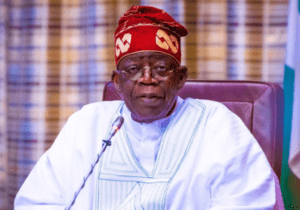Getting it right as a Nation
Adewale Kupoluyi
Many things are wrong with our dear country. The truth is that there is no nation under the sun that does not have its peculiar problems, which could be social, political, economic, or classified under other headings or even a combination of all. The issues bordering on values, morals, and ethos deserve utmost consideration in the sense that they centre around the people. That is why the challenges facing us as Nigerians are not only social, political, and economic in nature, but they cut across the cherished ideals of values, morals, and ethos.
Hard work, integrity and reward system of cherished ideals are hardly recognised here unlike what is obtainable in other climes where people are honoured, compensated, and adored for what they have been able to contribute to societal upliftment. A manifestation of this was seen a few days ago when it was announced that a national essay competition would be taking place among undergraduates in Nigerian universities. According to the organisers, the first prize winner would get a laptop computer while other lower categories of winners would get android telephones and other prizes. It should be placed on record that the organisers deserve commendation for encouraging scholarship, creating thinking, and promoting writing skills. This is the kind of intervention that the nation needs to engage the young ones productively.
After all, they have the option not to promote something that can add value to the people and society. The organisers would most likely be running the programme based on passion and available budget to uplift the reading and writing culture. Mental empowerment is so critical to the emancipation of man by nurturing the mind in such a way that the citizenry becomes informed and stimulating purposeful leadership through sound education. We may ask that what does it takes to successfully partake in a national essay competition? Apart from adhering to the strict rules and regulations, applicants are expected to be well-read, devote quality time, be disciplined, versatile, meticulous, and possess the ability to embark on research.
Hence, the efforts involved before winning any standard essay competition or academic exercise are enormous and should, therefore, be well compensated, not only to appreciate such participants but to celebrate mental tasks and encourage others to have the proper mindset that hard work pays. Today, many youngsters are too impatient and do not want to work, but they want to get rich quickly and live in affluence. Unfortunately, our society encourages the worshiping of ill-gotten money. The bone of my argument is that every work, vocation, and profession should be appropriately compensated and rewarded without giving the erroneous impression that one is either better or more important than the others. Teachers, farmers, scientists, medical workers, legal practitioners, judicial officers, artists, musicians, public servants, journalists, sportsmen and women, engineers, and other professions should be accorded due respect and reward in their own rights.
This is the thrust of the Adams Equity Theory of motivation, which was developed by John Stacey Adams, an American behavioural psychologist. It argues that the level of reward, when compared with sense the level of contributions, affect motivation. Adams reveals that individuals want a fair relationship between inputs and outputs for they want the benefits or rewards that they receive from their work to the contributions or inputs that they provide. The inputs could be in the form of time, education, prior experience, loyalty, adaptability, resilience, flexibility, and determination, among others. What is seen as a fair reward is shaped by the cherished ideals that are anchored on societal and social norms. Adams then recommends that leaders should ensure the establishment of a culture of fairness to bring about the desired motivation.
For the nation to do well, unnecessary attention should no longer be accorded activities that spin money at the expense of our cherished ideals, otherwise, we would continue to send the wrong message that real hard work, decency, and creativity do not pay. Without prejudice, the recent winner of the Big Brother Naija competition that was crowned winner of the reality television show, is an example. The winner, who suddenly became popular overnight, won prizes close to about N100 million in what many observers have described as glorified pornography because the housemates were alleged engaged in immoral acts. Another Nigerian boxer earned around £6-10 million within minutes of a bout, just as many politicians at all levels get fat salaries and allowances against the criticism that the fastest route to riches in Nigeria is to join politics.
How much does a professor earn? How much is the monthly salary of a school teacher, lawyer, or public servant including members of the armed forces and the police? What they get as salaries are nothing, but peanuts. This is the dilemma of working hard and the reward system in Nigeria. This is the imbalance that should be corrected. No wonder that many graduates abandon their disciplines and become fashion designers, make-up artists, and hairstylists overnight where they can make quick money without much mental stress and dumping what they learned in schools. We need to start getting it right before it becomes too late. We should learn from the experience of other nations that are making progress in terms of human capital, productivity, and the upholding of cherished ideals.
Our leaders should ask themselves the kind of nation they wish to bequeath to the younger generation. For instance, in the United States of America, Great Britain and advanced democracies that we copy, every profession is appreciated and rewarded appropriately. Hence, the foundation laid in such climes does not give room for the mad rush or jumping from one profession to another for sudden fame or wealth. This reorientation can be made possible thereby increasing the emoluments of teachers, professors, and other professionals to commensurate with their diligence, toil, qualifications, and experience. National honours and awards should no longer be given to politicians and their friends, but those who work hard across the board irrespective of their religion, tribe, or class. We should stop worshipping money, greed, impunity, and persons with questionable sources of income. The institutions of the family and religion should sit up and play a more active role in bringing back the cherished ideals. There should be a drastic reduction in the remuneration of politicians and political office holders while highly the wages of well-educated workers should be increased significantly to reduce brain drain and boost the existing low morale among the working class.
Back to the essay competition, more support should be given to such ventures. If we may ask, is there any undergraduate that does not have access to the laptop or android telephone? How do such prizes stimulate scholarship that is needed for national development? To make the desired impact, such educational programmes that have been neglected in the past should be encouraged. Rather than award tokenism prizes like laptop computers and android telephone, winners of national essay competitions and similar brain-tasking activities should be awarded scholarships to tertiary institutions and other tangible financial rewards. More wealthy individuals and bodies should support such good causes by donating generously to encourage and promote inputs such hard work and diligence, going by the prescriptions of John Stacey Adams, to engender a culture of fairness in our nation.
Kupoluyi writes from Federal University of Agriculture, Abeokuta (FUNAAB), Ogun State @AdewaleKupoluyi




